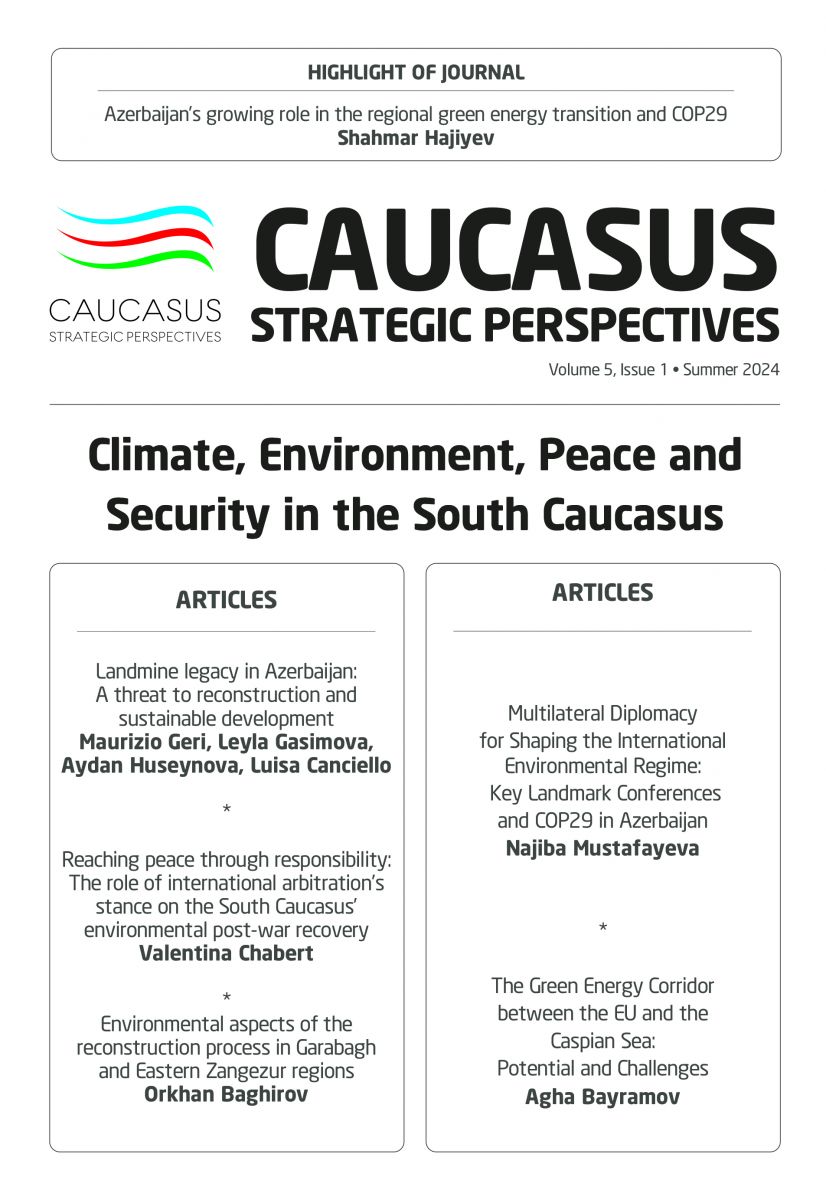Azerbaijan’s growing role in the regional green energy transition and COP29
Following the liberation of its occupied territories in the Second Garabagh War, Azerbaijan opened new opportunities for its renewable energy capacity in those territories. Yet Azerbaijan’s renewable energy portfolio does not merely eye an internal audience, it also has an international dimension. Azerbaijan approved the United Nations Framework Convention on Climate Change (UNFCCC) in 1995 and the Kyoto Protocol in 2000. The country joined the Paris Climate Agreement in 2016 and committed to decreasing the level of GHG emissions by 35% by 2030 compared to the base year (1990). Azerbaijan also has accelerated and increased the deployment of renewable energy sources across the country. In recent years, the country has created ‘Green Energy Zones’ and initiated the gradual process of decarbonization. Azerbaijan’s green growth strategy and green energy projects aim to transform the country into a ‘green energy hub’ in the region. Notably, on December 17, 2022, Azerbaijan, Georgia, Romania, and Hungary signed an agreement to support the Black Sea submarine cable project to supply electricity from the region to Europe. This project will serve as a ‘Green Energy Corridor’ that could become a new power source for the EU and may also ensure the export of electricity from Central Asian nations to Europe in the future. The country has declared 2024 ‘Green World Solidarity Year’, and Azerbaijan will host the 29th Conference of the Parties (COP29), an important step demonstrating Azerbaijan’s commitment to environmental protection and climate action.
Latest news
- 12/27/2024 Call for Submissions-Caucasus Strategic Perspectives, Volume 6, Issue 1, Summer 2025 668 views
Popular articles
- 07/18/2022 The Russia–Ukraine War: Perspective of Azerbaijan 4325 views
- 10/14/2020 The Non-Aligned Movement: In Pursuit of Validity and Relevance in the Contemporary Global Order 3307 views
- 10/14/2020 Vicious Circle of the South Caucasus: Intra-Regional Conflicts and Geopolitical Heterogeneity 3291 views
- 10/14/2020 Relevance of Non-Alignment for Azerbaijan’s Foreign and Security Policy 3020 views





